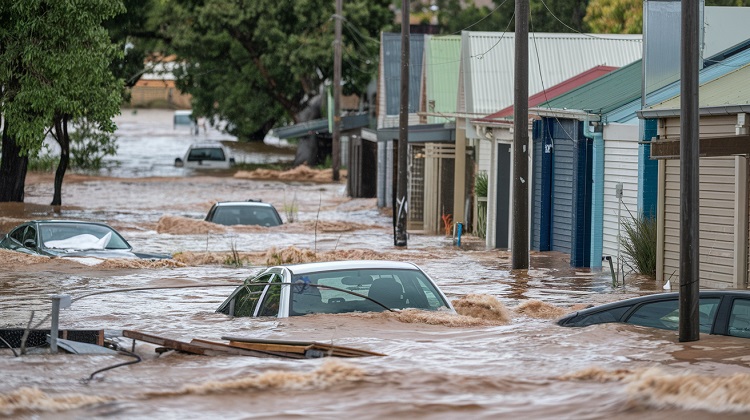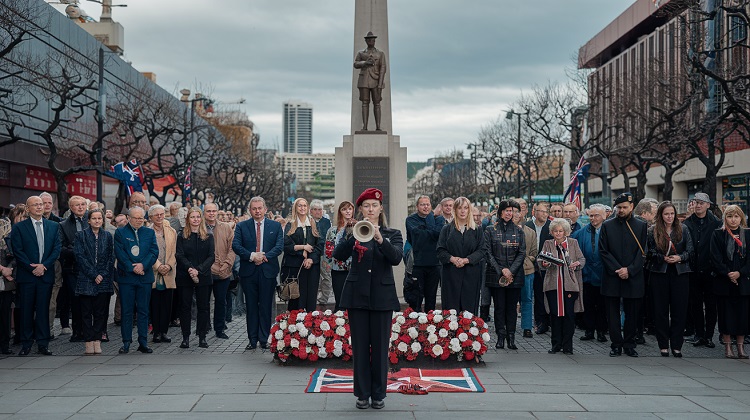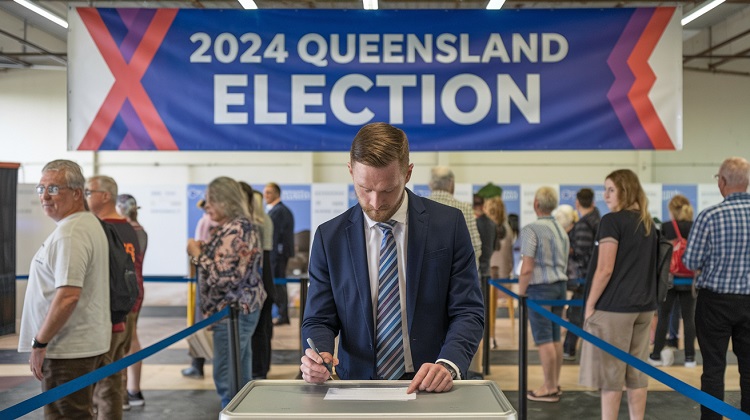A native title claim covering the Redlands coast could set a national precedent later this year in the Federal Court.
Land Dispute Shakes Brisbane: Indigenous Claims Threaten Prime Real Estate
A significant land dispute in Brisbane has the potential to reshape the city’s prime real estate. The Quandamooka people, recognized as the traditional owners of the Redland Coast, have filed a Native Title claim that spans approximately 530 square kilometers, including parts of Brisbane City.
If successful, this claim could grant Indigenous Australians native title rights on numerous council-owned properties and have significant financial implications. Stakeholders, such as the Redland City Council have expressed concerns and opinions regarding the claim.
Key Takeaways
- The Quandamooka people, traditional owners of the Redland Coast, have filed a native title claim over prime real estate in Brisbane, covering about 530sq km.
- If successful, the claim could grant exclusive native title rights to Indigenous Australians, potentially affecting approximately 3500 council-owned or managed properties, including community sites.
- The claim could result in the council losing control of sporting club grounds, cemeteries, and outdoor recreational areas, with potential costs of $210 million.
- Redland City Council is analyzing historical records to assess the defensibility of each site against the claim, while stakeholders express concerns about the precedent and lack of federal government funding for respondents.
Historical Background of the Land Dispute
The historical background of the land dispute provides important context for understanding the ongoing indigenous claims that threaten prime real estate in Brisbane. The claim was filed by the Quandamooka people, the traditional owners of the Redland Coast, and covers approximately 530 square kilometers, including parts of Brisbane City and mainland Redlands. If successful, the claim could infer native title rights on approximately 3500 council-owned or managed properties, which includes community sites such as a boy scouts hall, Redland Performing Arts Centre, and cemeteries.
The potential implications of the claim are significant, as the council could lose control of sporting club grounds, cemeteries, and outdoor recreational areas. Furthermore, a finding in favor of the claimants could grant exclusive native title rights to Indigenous Australians, costing the council an estimated $210 million.
The Redland City Council is currently analyzing historical records to determine the defensibility of each site against the claim.
Overview of the Native Title Claim
The Native Title Claim in question involves a land dispute over a significant area of land in Brisbane, with potential implications for the council and various stakeholders.
Filed by the Quandamooka people, traditional owners of the Redland Coast, the claim covers about 530 square kilometers, including parts of Brisbane City and mainland Redlands.
If successful, the claim could infer native title rights on approximately 3500 council-owned or managed properties, including community sites such as a boy scouts hall, Redland Performing Arts Centre, and cemeteries. This could result in the council losing control of sporting club grounds, cemeteries, and outdoor recreational areas.
The claim is currently being analyzed by the council, which is reviewing historical records to determine the defensibility of each site against the claim.
Potential Implications for the Council
The potential implications for the council include the loss of control over sporting club grounds, cemeteries, and outdoor recreational areas, as well as the potential cost of $210 million if the claim is successful.
If the Quandamooka people’s native title claim is upheld, it could grant exclusive native title rights to Indigenous Australians, including the right to possess, occupy, and use the land to the exclusion of others. This would mean that the council would no longer have authority over these properties, potentially impacting their ability to manage and maintain them.
Furthermore, the potential cost of $210 million would be a significant financial burden for the council to bear. As a result, the council is currently analyzing historical records to determine the defensibility of each site against the claim, in an effort to protect their interests.
Scope of the Indigenous Claim
Covering large areas of Brisbane, including popular scenic recreational areas and islands such as Lamb Island, Macleay Island, and St Helena Island, the indigenous claim seeks to establish native title rights for the Quandamooka people.
The claim, filed by the traditional owners of the Redland Coast, aims to secure native title rights over approximately 530sq km of land, encompassing parts of Brisbane City and mainland Redlands.
If successful, the claim could infer native title rights on around 3500 council-owned or managed properties, including community sites such as a boy scouts hall, Redland Performing Arts Centre, and cemeteries.
Redland City Council, the respondent in the legal process, is currently analyzing historical records to assess the defensibility of each site against the claim.
The potential implications of the claim include the council losing control of sporting club grounds, cemeteries, and outdoor recreational areas.
Furthermore, if the claim is found in favor of the Quandamooka people, it could grant exclusive native title rights to Indigenous Australians, allowing them to possess, occupy, and use the land to the exclusion of others.
Response From Redland City Council
Redland City Council expresses concerns about the potential precedent that the indigenous claim could set. If the claim is successful, it could grant exclusive native title rights to Indigenous Australians, which include the right to possess, occupy, and use an area to the exclusion of others. This could result in the council losing control of sporting club grounds, cemeteries, and outdoor recreational areas, as well as community sites such as a boy scouts hall and Redland Performing Arts Centre.
The claim covers large areas of Brisbane, including popular scenic recreational areas, and extends to islands such as Lamb Island, Macleay Island, and St Helena Island. Redland City Council is currently analyzing historical records to determine the defensibility of each site against the claim.
The potential implications of the claim could cost the council $210 million if successful.
Concerns Raised by Senator Pauline Hanson
Senator Pauline Hanson, representing Queensland’s One Nation party, has expressed concerns about the potential implications of the native title claim. She believes that it is just the beginning of similar claims and is worried about the precedent that this claim may set for future cases involving native title rights.
Hanson argues that the Queensland Native Title Services is being funded by the government to support these claims, while respondents, such as the Redland City Council, are left to fight them without adequate federal government funding.
Hanson’s concerns highlight the broader debate surrounding native title claims in Australia and the need for a fair and balanced approach that considers the rights of both Indigenous Australians and other stakeholders.
As the legal process continues, it remains to be seen how these concerns will be addressed and what implications this claim will have for future land disputes. See our article: Albanese government does ‘mass injustice’: Redlands council fighting ‘native title claim’
Funding Issues and Government Support
The concerns raised by Senator Pauline Hanson shed light on the funding issues and lack of government support faced by respondents, such as the Redland City Council, in their efforts to contest the native title claim. Hanson believes that Queensland Native Title Services, the organization representing the claimants, is being funded by the government for these claims.
However, she criticizes the lack of federal government funding provided to respondents to fight against the claims. This funding disparity puts respondents, like the Redland City Council, at a significant disadvantage in their legal battle. The council is already grappling with potential financial implications, as a successful claim could cost them $210 million.
The lack of government support further exacerbates their challenges and raises questions about the fairness of the process.
Existing Native Title Rights and Procedures
Existing Native Title Rights and Procedures have been established in Australian law for almost 30 years. These rights and procedures are separate from the ongoing land dispute in Brisbane involving the Quandamooka people. The Voice referendum decision does not affect these existing rights and procedures.
The Redland City Council is making efforts to clarify the status of the land under claim. It is important to note that a 2019 report by the Native Title Tribunal states that 40% of Australia has been claimed.
While the claim by the Quandamooka people may have significant implications for the council and the local community, it is crucial to understand that native title claims are a well-established legal process in Australia, and the existing rights and procedures will be followed in determining the outcome of this particular claim.
Clarifying the Status of Land Under Claim
Efforts are being made by the Redland City Council to determine the precise legal standing of the area subject to the native title claim. The claim, filed by the Quandamooka people, covers approximately 530 square kilometers, including parts of Brisbane City and mainland Redlands.
This claim has the potential to grant native title rights on approximately 3500 council-owned or managed properties, including community sites such as a boy scouts hall, Redland Performing Arts Centre, and cemeteries. To analyze the defensibility of each site against the claim, the council is examining historical records.
If the claim is successful, it could result in the council losing control of various areas, including sporting club grounds, cemeteries, and outdoor recreational areas. The potential implications of the claim extend beyond Redland City Council, and stakeholders such as Queensland One Nation senator Pauline Hanson express concerns about the precedent it may set.
Extent of Indigenous Claims in Australia
The extent of Indigenous claims in Australia is a complex and significant issue. Indigenous groups across the country have been asserting their rights to land and resources through the native title process. According to a 2019 report by the Native Title Tribunal, approximately 40% of Australia has been claimed by Indigenous peoples. These claims cover vast areas, including remote regions, scenic recreational areas, and even prime real estate in major cities like Brisbane.
The extent of these claims highlights the ongoing struggle for recognition and restitution faced by Indigenous Australians. It also raises questions about the balance between the rights of Indigenous peoples and the interests of other stakeholders, such as local governments and private landowners.
As the native title process continues, it is crucial to find a fair and equitable resolution that respects the rights and aspirations of all parties involved.
Conclusion
In conclusion, the land dispute between the Quandamooka people and the Redland City Council has the potential to significantly impact prime real estate in Brisbane. If the Native Title claim is successful, it could result in the council losing control of numerous properties and have a substantial financial impact.
The outcome of this dispute will have far-reaching implications for both the council and the Indigenous community, highlighting the importance of understanding and respecting native title rights in Australian law.
Albion News is a great place to find informative, up-to-date news articles. We provide a wide range of unique articles that offer an interesting perspective on current events from around the world and from various different sources. You can easily search for the topics that matter most to you and explore in-depth pieces that provide insight into the issues and important debates occurring today. Albion News helps you stay informed with carefully researched and credible stories!







